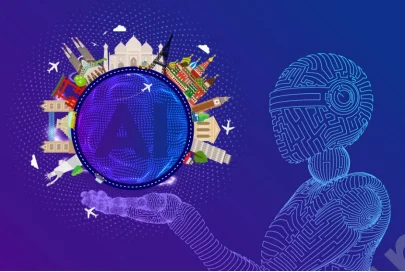
Are you ready for the transformative effect of AI on your travel?
Those of us who have been travelling since the 70s, 80s, and 90s know how passports looked then, names were not printed but handwritten, and air tickets had a physical booklet which contained all the necessary details of the travel as well as pre-printed instructions on do’s and don’ts of travel. For visas, one had to take notarized copies of their documents to submit on the due date of the visa interview and then wait until one received the much-awaited call for approval of visa.
Gen Alpha (those born post-2010) will be surprised to read this and for obvious reasons – “why print when you can do it online or on your mobile?” Some of us are still struggling with this online extravaganza as many of the senior travelers prefer to hold the documents in their hand (“just to ensure we have all in hand”) as opposed to soft copies. I don’t blame them, data can get corrupted, there will be no Wi-Fi or data connection, etc. – basically all tech problems have a solution too.
But now, with the age of AI (Artificial Intelligence), even Gen Alpha is in for a surprise. The latest word traveling around in every aspect is ChatGPT. It allows people to tailor their vacations based on who they’re traveling with or what activities they’re interested in—sourcing everything from activities for kids, to a list of top-rated coffee shops.
Advances in technology have transformed consumers’ expectations. Since 2013, time spent on digital devices has grown by 70 percent, and this trend only accelerated during the COVID-19 pandemic as online interactions increasingly replaced in-person contact.
However, traditional travel is unique in that it is an inherently human-centric experience. For travelers simply looking to get recommendations, be cautious against over-reliance on AI, which might be programmed using old information. ChatGPT, for example, will still have limited knowledge of data after 2021. Users run the risk of being directed to a restaurant that’s out of business or an attraction that’s closed. The industry, therefore, has an opportunity to define what travel will look like in the digital age. Travel is becoming more complicated. People want that personal touch.
Written By – Nisha Bal




